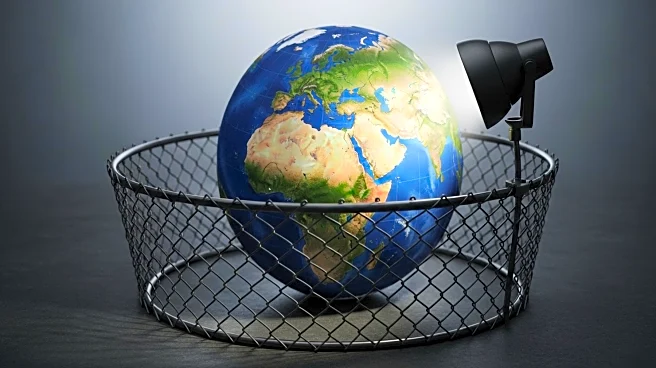What is the story about?
What's Happening?
The European Works Council (EWC), representing workers at Inditex, has called on the company to terminate its franchise agreement in Israel due to the ongoing humanitarian crisis in Gaza. This request follows a joint statement by the European Trade Union Confederation (ETUC) and other labor federations, urging the European Union to take decisive action regarding the situation in Gaza. Inditex, the parent company of major fashion brands such as Zara, Pull & Bear, and Massimo Dutti, operates 82 stores in Israel under franchise agreements. The EWC has communicated its stance to Inditex headquarters, emphasizing the need to sever commercial ties with Israeli franchise partners. The union is currently awaiting a response from Inditex, which has forwarded the request to upper management.
Why It's Important?
The call for Inditex to exit Israel highlights the intersection of business operations and geopolitical issues. If Inditex complies, it could set a precedent for other multinational companies facing similar pressures. The move could impact Inditex's business strategy and financial performance, given the potential costs associated with breaking franchise agreements. Additionally, this action reflects broader tensions between European labor unions and corporate entities regarding ethical business practices in conflict zones. The decision could influence public perception of Inditex and affect its brand reputation, particularly among consumers sensitive to humanitarian issues.
What's Next?
Inditex's response to the EWC's request will be closely watched by stakeholders, including other multinational companies, labor unions, and human rights organizations. If Inditex decides to terminate its franchise agreements in Israel, it may face financial repercussions and logistical challenges in restructuring its operations. Conversely, if the company chooses to maintain its presence in Israel, it could face continued pressure from labor unions and potential backlash from consumers advocating for ethical business practices. The situation may also prompt discussions within the European Union regarding corporate responsibility in conflict zones.
Beyond the Headlines
The EWC's call for action underscores the growing influence of labor unions in shaping corporate policies, particularly in relation to ethical considerations. This development may encourage other unions to leverage their collective power to address humanitarian issues, potentially leading to increased scrutiny of corporate practices in politically sensitive regions. Furthermore, the situation highlights the complex relationship between business interests and geopolitical dynamics, raising questions about the role of corporations in addressing global humanitarian crises.















